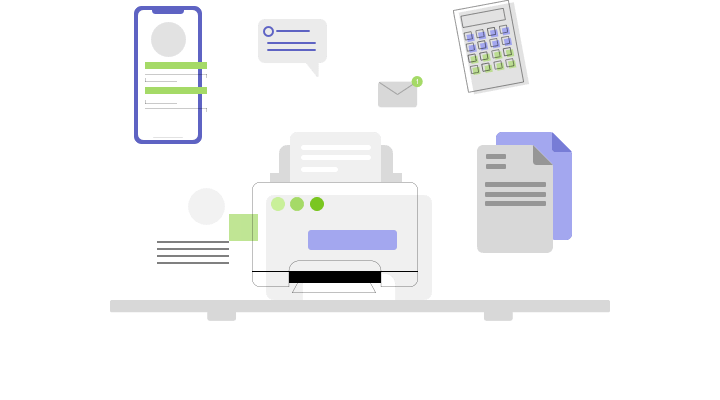
For example, consider a consulting company that provides a $5,000 service to a client on Oct. 30. The client received the bill for services rendered and made a cash payment on Nov. 25. Under the cash basis method, the consultant would record an owed amount of $5,000 by the client on Oct. 30, and enter $5,000 in revenue when it is paid on Nov. 25 and record it as paid.
What Does Cash Basis Accounting Mean?

Under cash basis accounting, income is only reported when it is actually received, and expenses are deducted when they are paid. This can be advantageous for businesses looking to defer income to a later tax year or accelerate expenses to reduce taxable income in the current year. For instance, a business might delay invoicing clients until the next fiscal year to push income into a later period, thereby reducing the current year’s tax liability.
- As its name implies, this method tracks accruals, which could be unpaid expenses or invoices that customers haven’t paid yet.
- If you need to know exactly how much available cash is in your bank account at any one time, cash accounting offers an accurate tracking system.
- Expense deductions under cash basis accounting are recorded when payments are made, aligning expense reporting with cash outflows.
- Finance Strategists has an advertising relationship with some of the companies included on this website.
- The business’s facts and circumstances will determine whether the cash basis method is appropriate for its situation.
- Large expenses or revenues that occur but aren’t immediately paid or received can distort financial reports in specific periods.
- Adam received his master’s in economics from The New School for Social Research and his Ph.D. from the University of Wisconsin-Madison in sociology.
How Do You Record Business Transactions Using Cash Basis Accounting?
- The client received the bill for services rendered and made a cash payment on Nov. 25.
- The IRS requires businesses that hold merchandise in inventory to use the accrual method.
- Accrual accounting can be contrasted with cash accounting, which recognizes transactions only when there is an exchange of cash.
- As its name suggests, cash basis accounting tends to provide a clear picture of a company’s cash reserves.
- Even though the order was placed in March, the money was deposited into the company’s bank account in April, so it’s recorded as an April transaction.
- An example of the difference between the accrual and the cash bases of accounting is presented below.
While a business doesn’t need to obtain regulatory approval when initially choosing an accounting technique, it will if it decides to change methods. In addition, if a business uses the cash method for revenue, it also needs to use it for expenses. Cash basis accounting is generally more straightforward and easier to administer, leaving more time for simply running the business. For as long as people have conducted business, they’ve likely tried to record their income and expenses. Researchers have found evidence of accounting records from thousands of years ago in Mesopotamia. Expenses for the materials you bought to complete the job would be recorded in June when they were bought.
Cash vs. accrual accounting: pros and cons
Whichever accounting method you choose for your business, tracking your spending is the first step to understanding business finances and cash flow patterns. BILL Spend & Expense can help you take control of your budget and start spending smarter with customizable spending controls and policies. Schedule a personalized BILL Spend & Expense demo to learn more about what it can do for your company’s financial health. Cash basis accounting only shows you how much cash you’ve brought in or paid out. For example, it might appear that the company has a lot of cash in the bank and positive net revenue, even though it owes thousands of dollars to its suppliers. accounting Cash accounting is not a complete picture of how your business operates because you’re only recording income and expenses in terms of when they occur.
- Take self-paced courses to master the fundamentals of finance and connect with like-minded individuals.
- Cash basis accounting is particularly beneficial for many small businesses, as it makes accounting simpler.
- Each TaxAssist Accountant runs their own business, and are passionate about supporting you.
- For businesses with substantial accounts receivable or payable, or those requiring more accurate financial reporting for decision-making, cash basis accounting might not be suitable.
- For example, it might appear that the company has a lot of cash in the bank and positive net revenue, even though it owes thousands of dollars to its suppliers.
- As an example, if you’re the owner of a landscaping company and your crew finishes up a big job in May, but you don’t get paid until July, you would record the income in your July books.

Particularly for small businesses who don’t keep a full-time accountant on staff, cash basis accounting is a simple alternative to more complex systems. It’s popular with businesses and freelancers looking for an effective way to keep track of their inflow and outflow. The accrual basis of accounting records revenue and expenses on the books when they are incurred, while the cash basis records revenue and expenses on the books when they are received or paid. Cash basis accounting is a method often favored by small businesses and sole proprietors for its simplicity.
Tax Implications of Cash Basis Accounting
For the accrual basis accounting method example, if a company purchases a piece of equipment in May, they may not approve the payment until the equipment is delivered in June. However, accrual accounting will still record revenue for May since that is when the purchase took place. While many smaller, younger companies can use cash basis accounting, it’s not suitable for all. Most smaller companies that carry inventory will need to use accrual accounting, as it will enable them to track changes in inventory.
For example, the Tax Cuts and Jobs Act of 2017 introduced tax rate adjustments that could influence these decisions. This helps in managing day-to-day finances efficiently as businesses can track the cash they have on hand at any given moment. Kristen Slavin is a CPA with 16 years of experience, specializing in accounting, bookkeeping, and tax services for small businesses. A member of the CPA Association of BC, she also holds a cash basis accounting Master’s Degree in Business Administration from Simon Fraser University. In her spare time, Kristen enjoys camping, hiking, and road tripping with her husband and two children.

Effective Bookkeeping Contracts: Key Elements and Structures
IRC Section 162 permits the deduction of ordinary and necessary business expenses, but the timing depends on when payment is made. Businesses can strategically time payments, such as paying vendors early, to accelerate deductions within a specific tax period. Cash basis accounting does not provide a comprehensive picture of a business’s financial health. It ignores transactions Law Firm Accounts Receivable Management that haven’t involved actual cash, leading to an incomplete understanding of overall profitability and financial position. Invoices sent to customers or bills received from suppliers are not recorded until payment is made or received. For example, if a business purchases inventory and pays for it in cash, the expense is recorded at the time of payment.